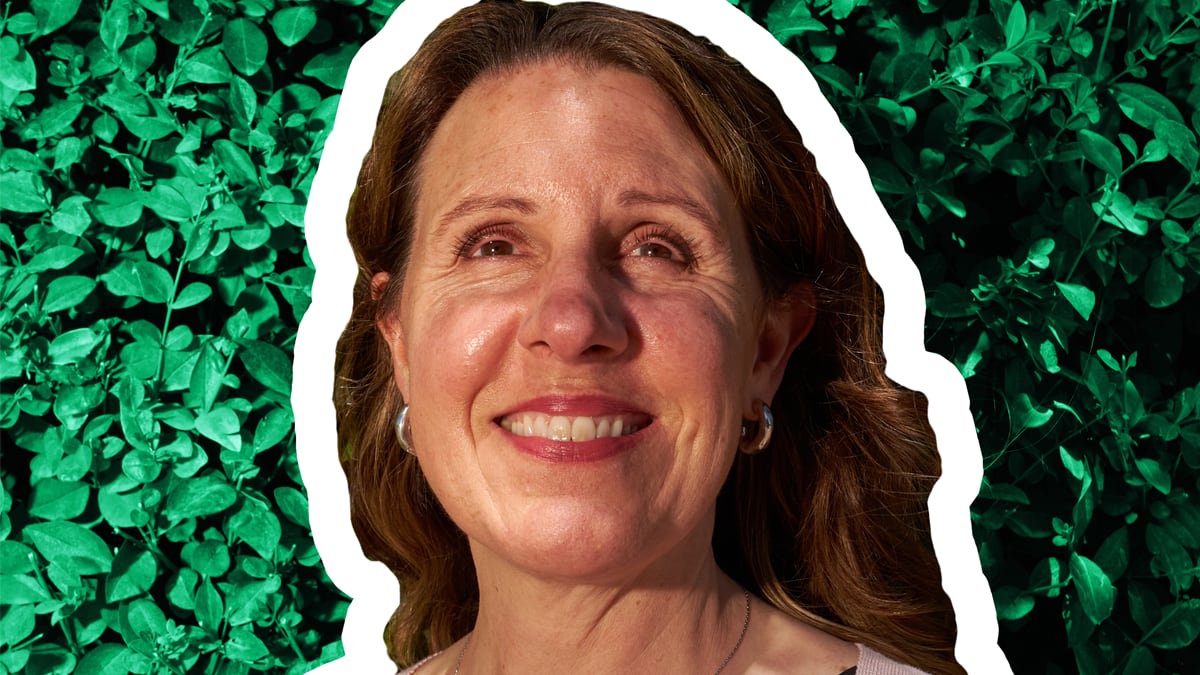Last month, the bleak reality of Portland’s streets confronted Deborah Kafoury—and chased her down the block.
“I was out for a walk with a friend of mine the other morning and had to run,” she says. “Some human being was experiencing a mental health crisis and was charging towards us.”
For Kafoury, 53, who has held the job of Multnomah County chair since 2014, it was a personal encounter with a humanitarian disaster she wants to fix.
“It’s devastating,” she says. “It’s devastating for the folks who are living that way. And it’s devastating for our community members who see it on a daily basis.”
She says the poverty and squalor unspooling each day on Portland’s streets are the direct result of a housing crisis she’s dedicated years trying to alleviate.
Her critics might say she’s seen the results of her own policies.
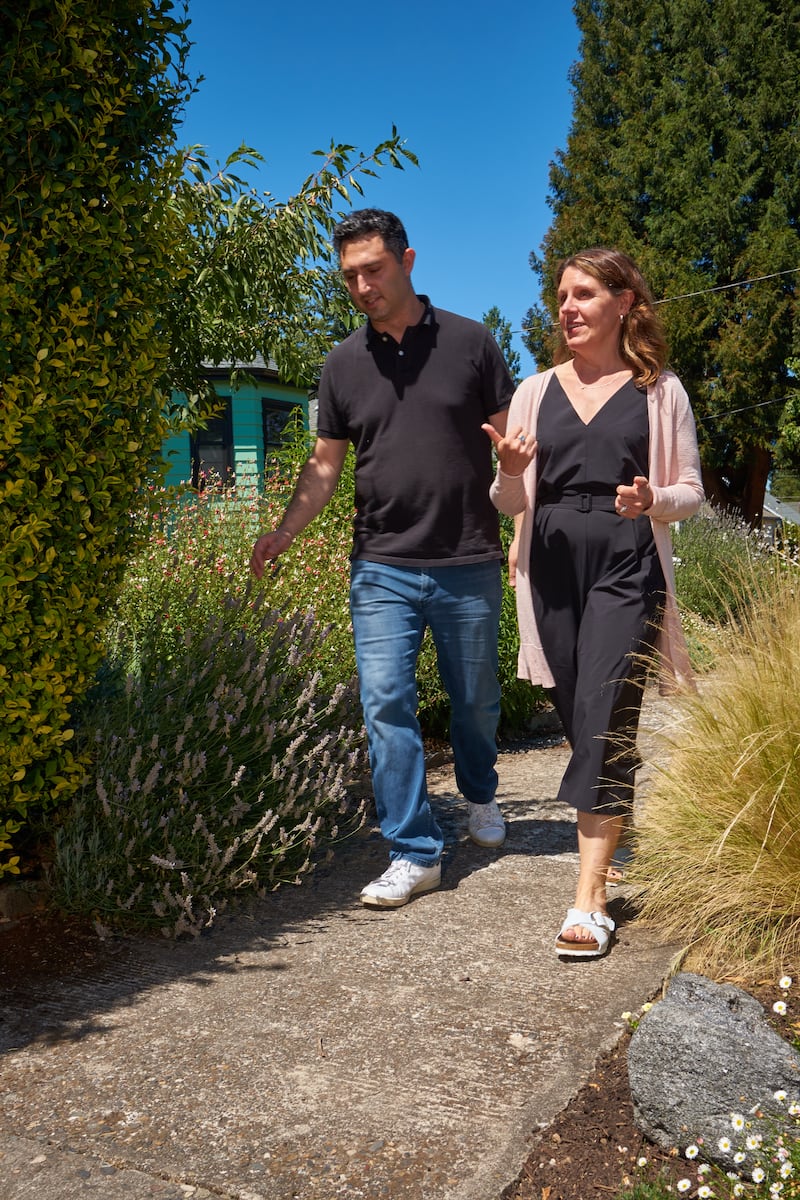
Perhaps no official in this city has labored longer and with such singular purpose as Kafoury on homelessness—the civic illness that never seems to abate. No leader, aside from late City Commissioner Nick Fish, has done more to champion dedicated funding to build affordable housing and provide services that help keep people there.
The city and county work together to fund services for homeless people, while the city is in charge of a Housing Bureau that produces subsidized apartments. The city sets the policy for sweeping homeless camps while the county takes the lead on providing housing vouchers and other aid to the downtrodden.
Fairly or not, her hard work ties Kafoury to the results on the streets, even as Portlanders emerge from pandemic shutdowns furious at the campsites they encounter in every neighborhood.
Her critics—who have ranged at various times from Mayor Ted Wheeler to County Commissioner Sharon Meieran to businessman Jordan Schnitzer—have said local government should act with greater urgency and devote more money to shelter beds rather than try to keep destitute people in apartments.
“I believe we need to be addressing the situation like the emergency that it is,” says Meieran. “People are dying on the streets in growing numbers.”
If for no other reason, that fight makes Kafoury as interesting a politician as any in the state.

But Kafoury is compelling for other reasons, too. The daughter of late City Commissioner Gretchen Kafoury, she comes from the closest thing Portland has to a political dynasty. Since replacing a scandal-plagued Jeff Cogen atop Multnomah County seven years ago, she has sailed to reelection with strong public support.
Her supporters believe Kafoury is the one elected official in Portland who can plausibly claim to have tangled with the all toughest problems in the state and not embarrassed herself in the process. She’s an executive who has kept her focus on relieving poverty while getting a bridge and a courthouse built.
“Deborah Kafoury has done more for housing justice in Oregon than any elected official in our state’s history,” says Israel Bayer, director of International Network of Street Papers North America.
That’s part of the reason Kafoury’s name has long appeared on the short list of possible Democratic candidates for governor in 2022.
But such a candidacy appears increasingly unlikely.
In the past week, WW has learned, Oregon House Speaker Tina Kotek has neared a decision to enter the Democratic gubernatorial primary. Kotek, like Kafoury, is a Portland progressive and an ally of Gov. Kate Brown, but is also a longtime darling of labor unions.
That doesn’t leave a lot of room for Kafoury. The emerging candidacy of New York Times columnist Nicholas Kristof crowds the race even further. By Labor Day, as many as four candidates—Kotek, Kristof, Oregon Treasurer Tobias Read and Oregon Attorney General Ellen Rosenblum—may have entered the field. (Disclosure: Rosenblum is married to the co-owner of WW’s parent company.) Yamhill County Commission Chair Casey Kulla is already in.
So what is Kafoury thinking?
We wanted to hear from her. She is not known for her candor; she’s doesn’t hunt for headlines and has an uneasy relationship with the press.
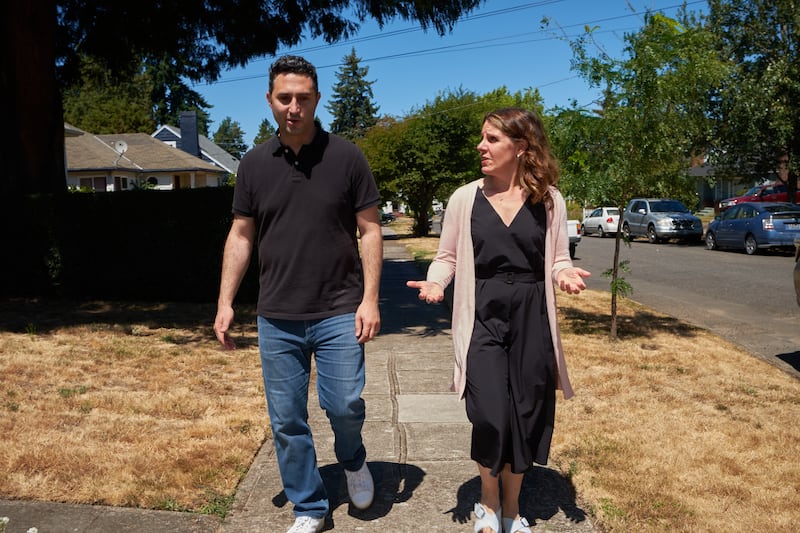
Last week, she invited us onto her front porch in Eastmoreland to dish on the state of Oregon politics and Portland’s streets. One of the first things out of her mouth was an admission of the bitter resentment Oregonians feel toward their politicians.
For the next two hours, as squirrels scampered across tree trunks in her yard, Kafoury engaged in an intricate verbal dance with WW, both defending her record and voicing the same frustrations Portlanders feel about the condition of their city.
She said she wouldn’t sign a petition to recall Wheeler—but only after saying she was thinking about it and that she saw no way to help him save his tenure in office. She pledged the streets of the Portland would look significantly different in a year—but complained that City Hall should focus on picking up trash. She was disarmingly funny and willing to admit mistakes—but openly weary of the close scrutiny that comes with public office.
The conversation shows what will be missing if Kafoury is not on the campaign trail for the state’s highest office. She had plenty to say.
WW: What evidence can you provide that you’ve moved the needle on housing?
Deborah Kafoury: Twelve thousand people on any given night who are sleeping with a roof over their head who would otherwise be homeless. That’s actual permanent housing. That doesn’t include the shelter system. We have families who are in shelter and then move into housing. There was not really any options for that before I came into office.
And yet a lot of people look at what they see on the streets right now and it feels like a failure.
It’s very true. What is happening on the streets of our community is devastating.
What responsibility do you take for this very apparent misery?
It’s a failure on all of our part as a community.
I don’t know that you can point to any one individual. Wouldn’t it be nice if we could just say it’s this person’s fault? It would. I don’t think it’s as easy as that.
It’s really hard to expect any one community to take on something as complex as homelessness. It’s a poverty issue. It’s a housing cost issue—market forces. It’s a mental health issue. It’s substance abuse. It’s social isolation. It’s a lot of issues coming together. And look back to the middle of the ’80s, where the federal government started just walking away from this, expecting local communities to handle this issue.
The pandemic has made things increasingly difficult. And, if you think about the number of calls to our crisis line from people who had never experienced a mental health crisis before in their lives, just the dramatic increase.
This is why I’m not the world’s most beloved politician, because I tell the truth. I can’t not tell people the truth. And the truth is that there are all the externalities that hit us.

So which piece of the housing puzzle is your responsibility?
The role that I can play best is thinking through where we’re going next. And prior to the pandemic, we were on a good trajectory.
We started with the Portland housing bond [that city voters approved for $259 million in 2016]. Then we had the Metro housing bond [that tricounty voters approved for $653 million in 2018.] And then, at the very beginning of the pandemic, [tricounty voters] passed the Metro supportive services measure [a tax on high-income households to raise up $250 million a year for homeless services]. Each measure builds on the last one with the goal of getting people off the streets and into housing.
The biggest point of conflict between you and other local officials is your emphasis on funding permanent housing rather than shelter beds. What do you say to somebody who looks at that person who’s sleeping on the street and says any shelter would be more humane than this?
I say: You’re right. It’s true. And that’s why we’re opening up more shelters. [But] a shelter does not solve someone’s homelessness, not by any definition. And you can get somebody into an apartment just as easily as siting a building or renovating a shelter.
I’m more committed than ever to actually ending people’s homelessness. And we’re opening up more shelters. We’re purchasing motels that are going to convert into a living arrangement. We’re expanding our behavioral health services, both for people who are sheltered and unsheltered.
And you really can’t discount the budget that the county just passed: 1,300 households will be in housing by the end of this year. And another 500 shelter beds will be open, and that’s going to make a huge physical difference. We’re not going to solve the problem in this next year, but we are going to make huge strides toward that.

Are you saying people a year from now will actually be able to see a difference on Portland’s streets?
Maybe not everywhere, but yes—1,300 households is a lot of people. So there will be a visible difference.
For years, you and Jordan Schnitzer argued over whether to turn the never-used Wapato Jail into a shelter. He now essentially dunks on you in public, saying, “Deborah refused to open Wapato Jail as a shelter. I did it. It’s a huge success.” Is that true?
He is telling a story that suits his fundraising. He’s trying to fund his project. I don’t agree with him. I went out and visited Wapato—uh, Bybee Lakes [Hope Center]—and it reinforced my decision not to open it as a shelter that we run.
I saw a very expensive project. If the county had put as much money into that building as he has, we would have been on the front page of your newspaper.

At last count, there were 4,000 people sleeping on the streets of Multnomah County most nights. City Hall is now trying to open “safe resting sites” across Portland. Will people see a change?
I don’t know enough about the size of these camps, the structure of them, to say.
What would make a real visible difference that you could accomplish quickly is cleaning up the trash around town. [Editor’s note: A dozen agencies share sanitation responsibilities in Portland. Most are overseen by City Hall. None is run by the county.] Homelessness is a complex issue with a lot of factors at play. It’s not something that you can snap your fingers and solve. Picking up the trash is actually not that difficult. That’s a solvable problem. And one of the things that the city should do right now is to pick up the trash.
It’s going to be expensive. It’s going to take some maneuvering with all the different bureaus involved. But it’s something that you could actually solve. It would be visible. And I think it would go a long way towards helping people feel like their concerns are being heard.
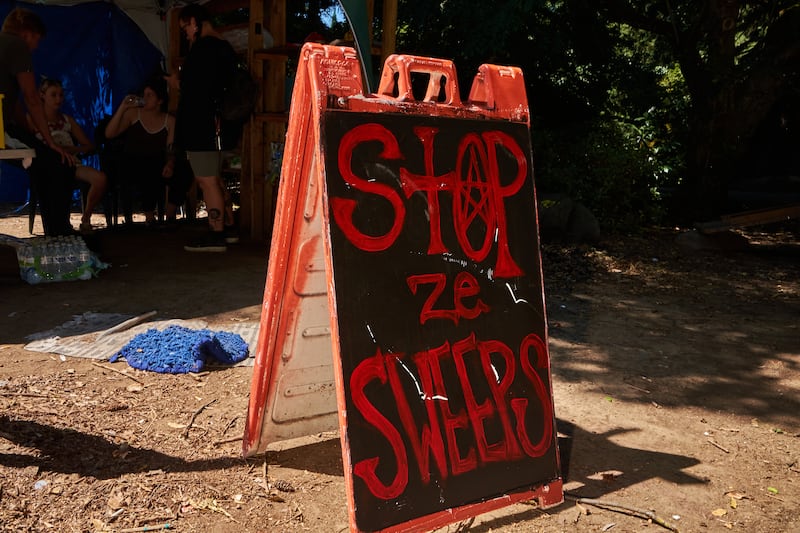
Is it immoral for the city to sweep campsites before safe rest sites open?
It is important to clean up campsites, and there’s ways that you can do it that are less intrusive and less harmful.
I believe that [city officials] try to do the least intrusive way possible, but you need to clean up the campsites. Sometimes there’s biohazards—it’s harmful to human health.
I find that answer a little surprising. There’s a public impression that Ted’s the sweeper and you’re the mom who cares too much.
I do care. And that’s why I think you do need to clean things up. That’s why the city needs to clean up the garbage. There’s easy, low-hanging fruit, which is cleaning up the trash. And I do feel like the public needs to just be pounding on the table about that.

Are you going to sign the petition to recall Mayor Wheeler?
I haven’t decided.
If he’s recalled, would you consider running for mayor?
I think being the mayor is a really untenable job right now. I want someone really, really good to do it, if he does get recalled. I tried to get Tina [Kotek] to run for mayor.
Isn’t Tina Kotek running for governor?
I have heard.
Does that influence your decision to run for governor?
Sure. Anybody who gets into the race influences decisions. Kudos to people who have jumped in already.
Have you ruled out a run for governor at this time?
I haven’t. I have not had five minutes to think about anything.
What did you make of New York Times columnist Nick Kristof weighing a run?
Politically, it’s a smart move if he does, because there’s a large anti-incumbency sentiment and people feel like their leaders have let them down in many ways.
But it has always bothered me that people talk about “we’ve got to run our government like a business” or “anybody could have that job.” I don’t think anybody can have these jobs. I think it’s really hard. And it has gotten harder. No offense to journalists—wonderful, intelligent people who have that inch-deep, milewide knowledge of everything—I don’t know that is the best preparation for being the governor.
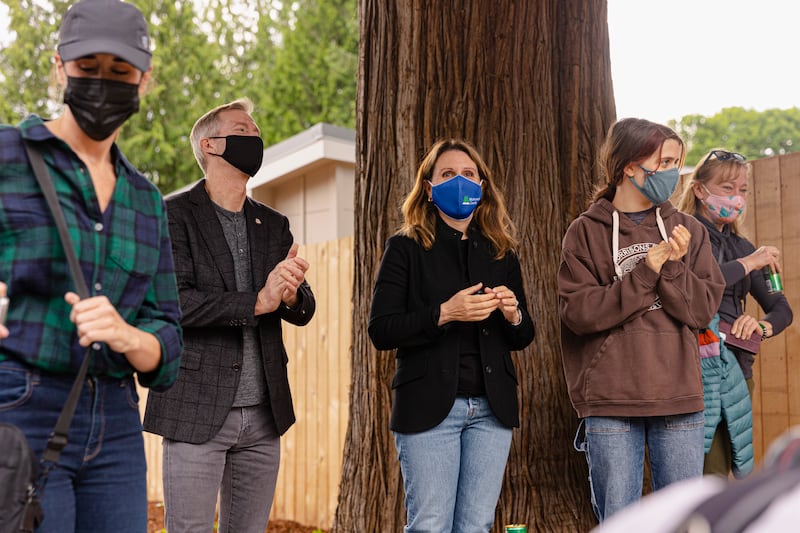
How is your relationship with the mayor? There’s well-known tension between the two of you. How could it be improved?
If he would do what I would say more often? Just ask my husband: If you just do what I say, things go a lot more smoothly.
You did just tell us that you were at least considering signing the recall petition.
I was joking. I’m not going to sign that. We just had the election. People had the chance to vote against him if they wanted to.
It is like kicking a dog when he’s down. If I believed that I could make it better by publicly criticizing him, I would totally do it. [Editor’s note: Kafoury was notably scathing in her reaction to Wheeler’s strategy for removing homeless camps from downtown sidewalks this spring.] I have publicly criticized him, and he hasn’t changed his direction. And I don’t think he’s going to. I don’t think there’s anything I can do or say that’s going to change his mind or make him do things better or different. I’ve tried it.
What’s your assessment of how Multnomah County District Attorney Mike Schmidt is doing?
I think he is in a tough position. Like everyone, he early on had a stumble: leading with “I’m not going to prosecute people.” The way it was framed I don’t think made him look good in the public. Since then, I think he’s taken very seriously prosecuting people who’ve broken the law. And he’s said the police need to arrest people with an actual rationale that will allow him to prosecute them if they’re breaking the law. And arson is one of them.
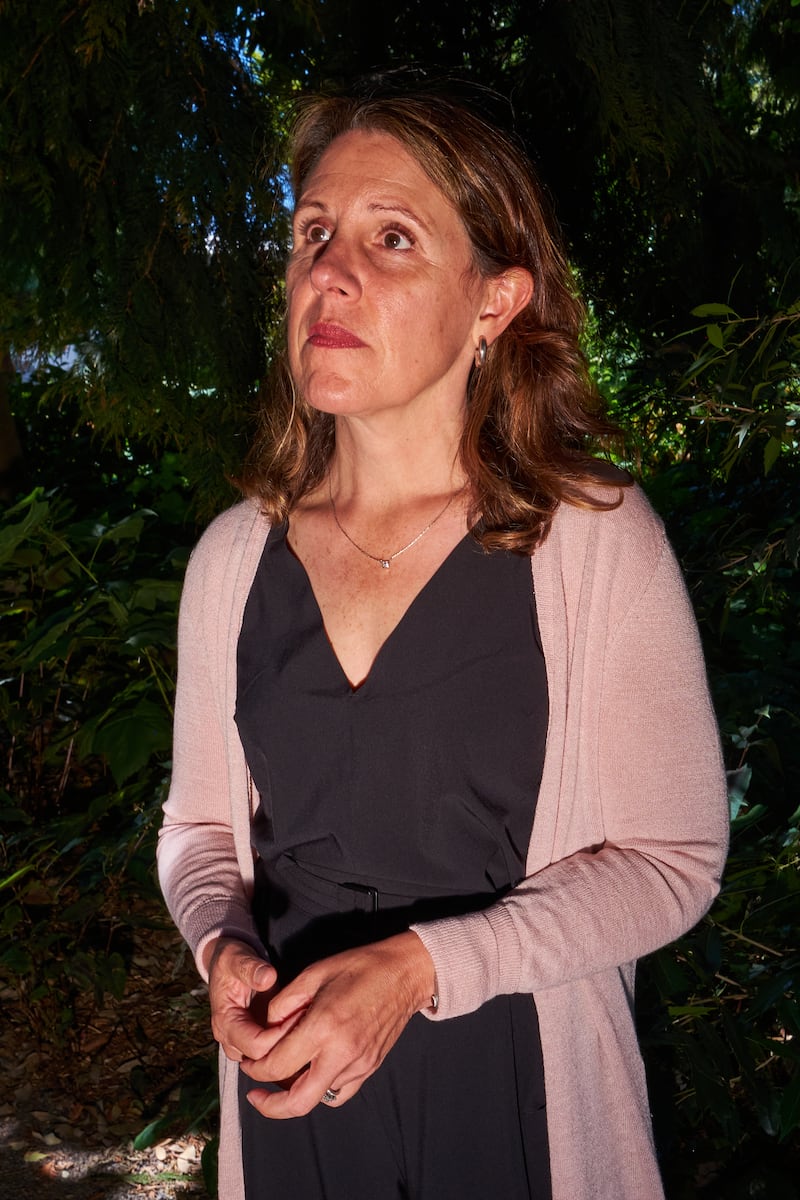
You disagreed with Gov. Kate Brown at several junctures in the pandemic, including wanting her to shut down the state more rapidly. That had to be awkward: Your husband, Nik Blosser, was Gov. Brown’s chief of staff. What’s that like?
Oh, you should ask my children about our evening dinner conversations. Stressful. I think the best thing for our marriage was him leaving the governor’s office [laughs]. I don’t know if we would have made it through.
While we’re on the topic: What’s the hardest decision you had to make during the pandemic?
Probably shutting down the county. We were going to be potentially destroying people’s lives. That weighed really heavily on us. But we were doing it to save people’s lives. I mean, it did destroy people’s lives.
Do you lose sleep over that?
Oh, I haven’t slept. It was kind of like having a newborn. I don’t sleep.

But does it weigh on you?
The emails and phone calls that I have received—what people are going through and what people have been through—it is just devastating. But if you look at Oregon’s COVID rates compared to any other state in the country, we did really well. We saved a lot of people’s lives.
Given the crucial role that libraries play for low-income people and people of color, why are they still closed?
I really thought we would be still in some form of shutdown through the fall. If I could go back in time, I would have pushed things to be open more quickly.
There is a real struggle with getting people back into an office work environment, especially if you have kids. We did try to balance our employees’ needs with the community’s needs.
Let’s talk about the heat. What calls did you make in the first 48 hours as you realized how dangerous this would be?
It was déjà vu from the pandemic—learning about all the soccer matches and outdoor events that were going to be occurring that weekend. And trying to figure out who was going to call which team. I called the Timbers. They agreed to push off the start time to be later in the evening. We called through our caseloads—the people who are in aging disability [care], hundreds of thousands of calls.

Do you look back on that weekend and wish you’d done something differently?
There’s a lot of things. I don’t know if “differently” is the right word, or if there’s just other, additional things that we could have done. I don’t know that anybody except maybe the doctors understood really what it was going to be like to live through 117 degrees for three days.
Having an alert system, like an earthquake alert. That’s just something that didn’t cross our minds, but I’m darn sure going to do it next time.
So next time, there’ll be a push notification.
Yeah.
Are there things you wish another jurisdiction had done?
TriMet should have had a real clear message: We will have free fares. I don’t know what the threshold is—whether it’s 105 or 100 or 110 or whatever, but there should be no person who’s scared to get on or nervous about getting on a bus and not understanding that they can get on a bus and ride as long as they want.
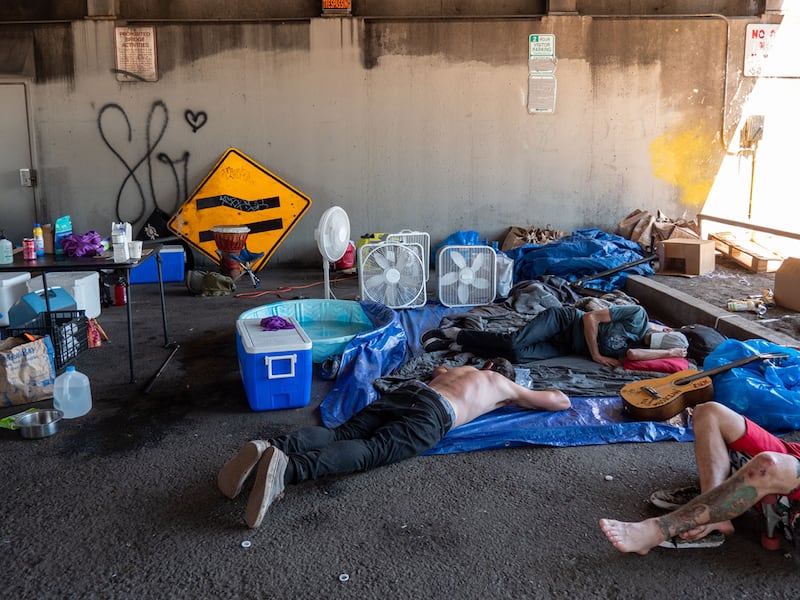
What do you make of the fact that the governor is so very unpopular at this point?
Well, from what I hear, all politicians are pretty unpopular right now. It’s a tough time to be in elected office. It’s been a rough year and people are unhappy. And if you’re the top person in the state, it’s going to be you.
When you see an Instagram account called “Portland Looks Like Shit”—photographs and video of people in mental crisis with the caption “This is what elected officials did”—does that bug you at all?
It’s frustrating. It’s sad to me to think that people are just so done that they would rather pick everybody up who’s living on the streets and ship them off to Burns than spend the necessary time and energy. We have the money to get them into actual housing and address their needs.
Well, a lot of people think it can’t be done.
I think we have to do it.
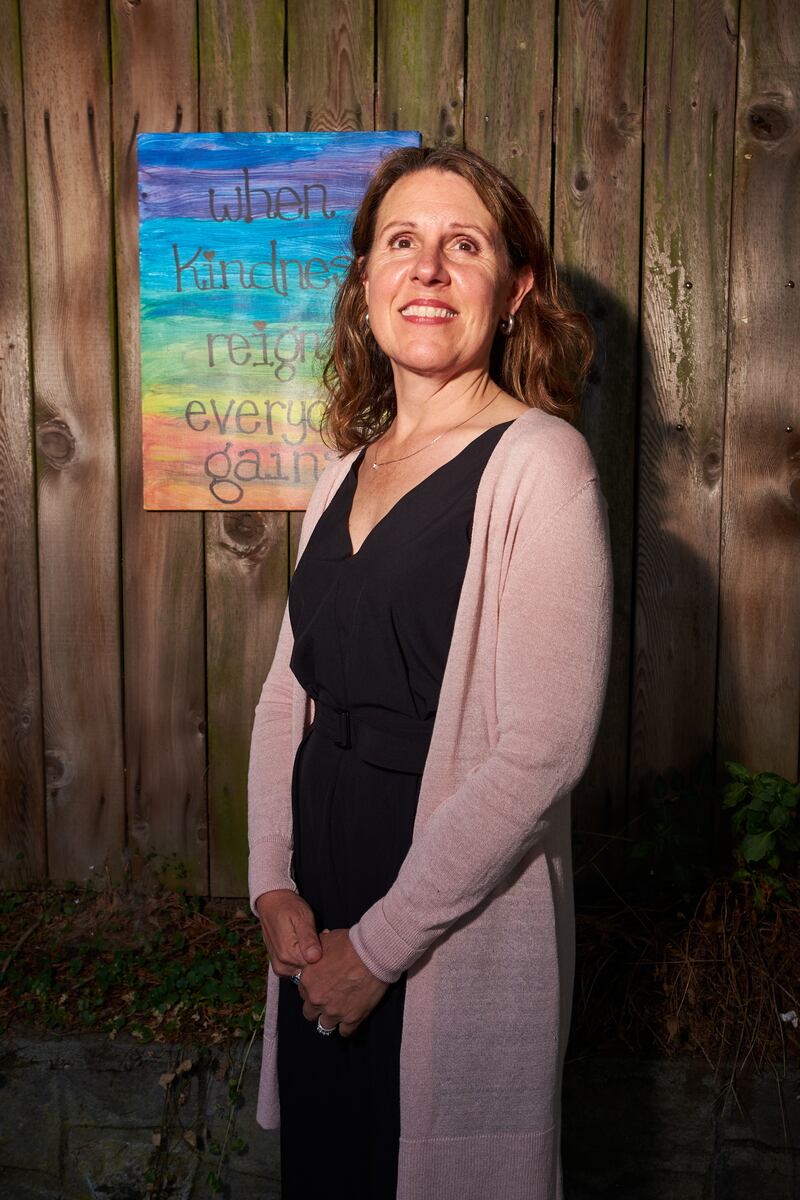
Vitals: Deborah Kafoury
Age: 53
Education: Bachelor’s degree in English, Whitman College. “I thought that I would become a journalist,” she told her alumni magazine in 2019.
Mother: Gretchen Kafoury, a former state representative, Multnomah County commissioner and Portland city commissioner. She died in 2015. “I do wish I could talk with her,” Kafoury says, “especially at the height of the pandemic.”
Father: Stephen Kafoury, a former state lawmaker and Portland School Board member.
Other family: Greg Kafoury, uncle, and Jason Kafoury, cousin; both prominent trial lawyers.
Husband: Nik Blosser, former chairman of the Sokol Blosser winery, former chief of staff to Gov. Kate Brown, and chief of staff to the Office of Cabinet Affairs under President Joe Biden.
Her jobs before Multnomah County chair: Aide to U.S. Rep. Les AuCoin, political consultant, lobbyist, Oregon House minority leader (the youngest woman to serve in that role), and Multnomah County commissioner.
Achievements at Multnomah County: Oversaw replacement of the Sellwood Bridge; led construction of the new, $324 million Multnomah County Courthouse; and founded the Joint Office of Homeless Services, which unites city and county programs. “I love the infrastructure projects because they have a beginning, a middle and an end,” she says. “Unlike poverty or racism, you can actually finish something.”
Secret talent: “I can make a martini. That is my specialty, FYI.”
Correction: A previous version of this story stated that Nik Blosser was chairman of the the Sokol Blosser winery; he is former chairman. WW regrets the error.
